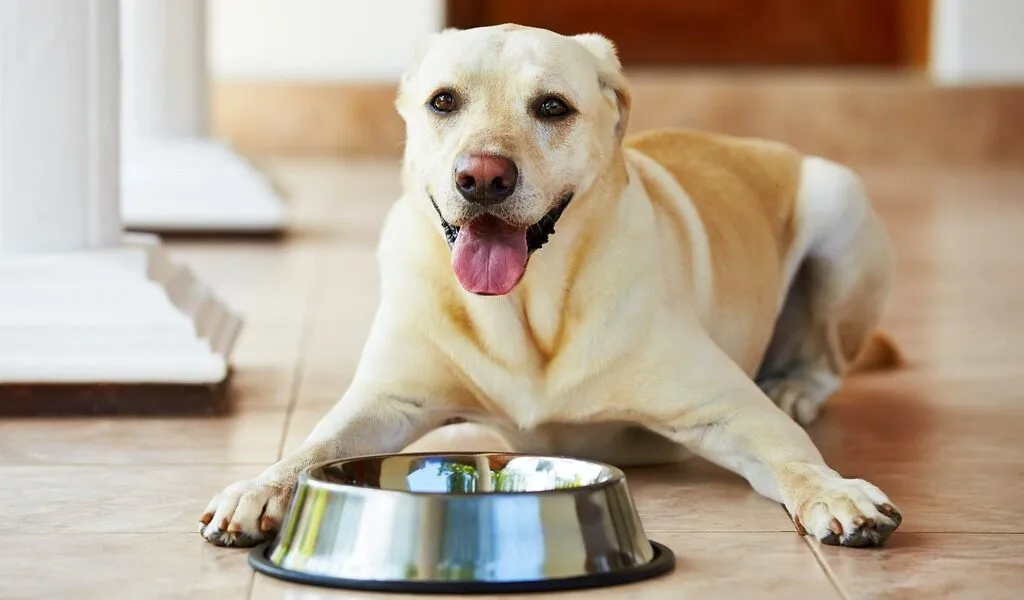Loss of appetite or “anorexia” is a common problem in dogs. While many breeds are naturally fussy eaters, there are some dogs that refuse to eat due to a wide variety of reasons.
If your beloved pet doesn’t eat anything for a few hours but then gulps up food happily, it might indicate a minor stomach problem like indigestion or simply a change in mood. However, loss of appetite can be life-threatening at times.
Most dogs can survive for 3-5 days without any food, but some can go for a week or more. If you feel your dog might be plagued with an eating disorder, here are five tips to find out.
One important thing to understand is that anorexia in dogs is not the same as in humans. In the case of canines, there are two types of anorexia – partial and complete. If you see your pet eating very little amounts of specific food but isn’t eating enough to keep itself healthy, it’s partial anorexia.
But if your dog refuses to eat absolutely anything, then it’s complete anorexia. Partial anorexia can be due to various reasons, such as difficulty in chewing or swallowing, whereas complete anorexia can occur due to physiological or psychological stress.
1. Observe your dog’s behaviour
Observe how your dog is behaving around food as carefully as possible. Is it refusing to eat everything or only certain food items? If you are away, you can even observe via a pet cam. See if there are any other behavioural changes or not.
Pay attention to its stool and urine too, since they can give you valuable insights regarding your baby’s health. If you think all is normal, then it’s okay to let it skip one or two meals. But if you observe frequent vomiting or diarrhoea, you must consult a vet as soon as possible.
2. Check teeth and body
Ask your dog to open its mouth and check the condition of its teeth. If it has swollen or bleeding gums, or loose teeth, it might explain why your dog isn’t willing to eat anything.
When checking the body, notice very carefully if you can find any sort of parasites or not. See if the skin is soft and smooth or has become scaly and irritable. Also, check for lumps or injuries. If your dog has hurt itself, it won’t feel like eating anything for long hours.
3. Check the food
Not only is checking your dog important but also checking the quality of the food you have given. Is there a funky smell coming out of it? Dogs have a sense of smell much stronger than humans, which is why stale or rotten food that goes unnoticed by us doesn’t sit well with them.
Before you give any meal, always check the expiry date, ingredients, and other necessary details. If you see that the food you have given is spoiled, immediately change it and give something else.
4. Notice your surroundings
One of the major reasons why dogs suddenly stop eating is because they playfully swallow something they shouldn’t have and are now suffering from a stomach problem. So scrutinize your house, backyard, garden, and every possible place your dog might play in.
Be extra careful while checking the medicine cabinet or kitchen, since some items meant for humans can be fatal to dogs. If you see any small item missing or your dog suffering from unusual kinds of stool, call your vet right away to perform a scan.
5. Examine your actions
Have you been feeding lots of treats to your little one lately? If you have, it can indicate a loss of appetite in your dog. Giving too many doggy treats or table scraps can be detrimental to their health. On the other hand, it can also mean your dog is bored of the same old treats and wants newer flavours!
If you want to buy some tasty treats for your canine friend, check out https://www.petstock.com.au/. It has not only dog treats and food but also toys, crates, clothes, and every other thing you could possibly want for your dog!
Over to you…
While there are many signs pointing towards Loss of appetite or “anorexia” in dogs, most of these signs are subtle and go unobserved. If you feel something is wrong with your pet, take it to a vet today and give it the proper treatment that it needs, along with medication and rest.
How to Resolve Your Medical Needs: Examining Weight Gain
⚠ Article Disclaimer
The above article is sponsored content any opinions expressed in this article are those of the author and not necessarily reflect the views of CTN News






